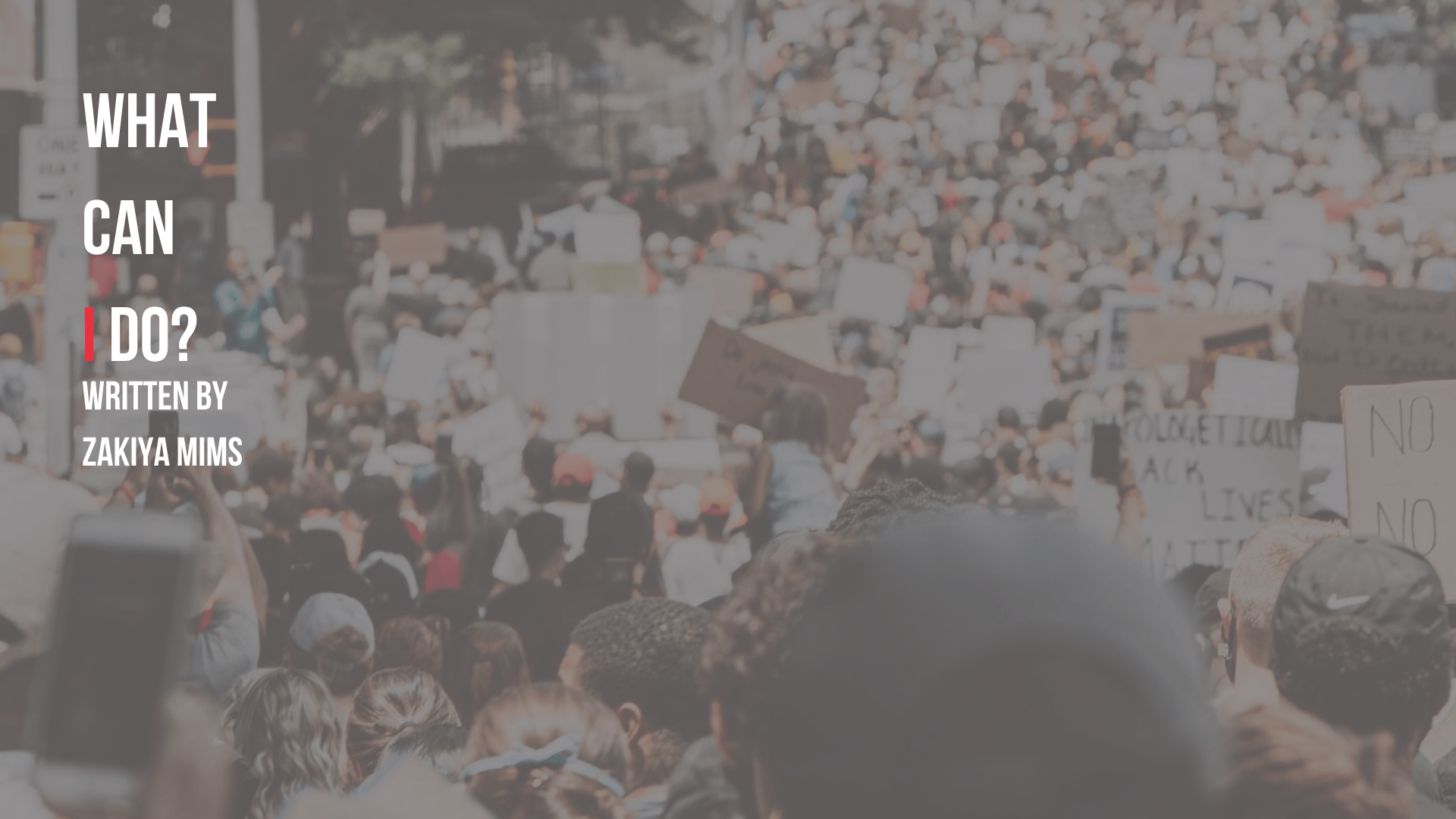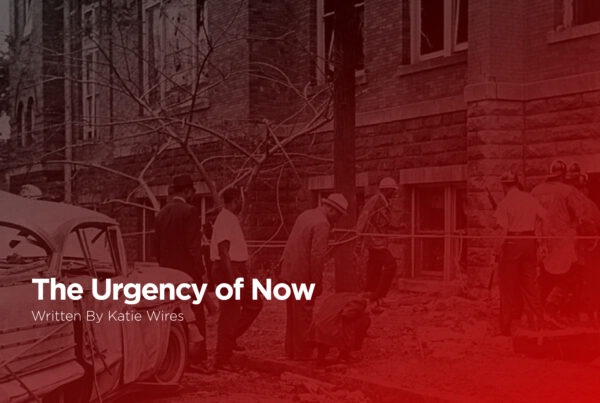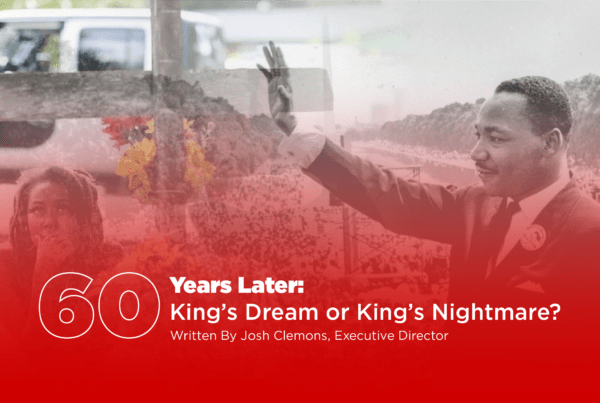On Tuesday, May 5th, a graphic video of Ahmaud Arbery’s death filled headlines and social media sites. By Sunday, May 10th, I had received more inquiries and messages from white people (particularly Christians) than I could emotionally or relationally manage. On top of the multitude of messages, I read social media post after social media post of Christians (particularly white Christians) expressing lament and/or expressing sentiment of not knowing what to do.
Every inquiry I received contained one of these three questions. “What do you think about the situation in Brunswick?” “How are you?” “What can I/we do?”
In Response to “What do you think about the situation in Brunswick?” and “How are you?”
Contrary to my relational reputation, I held (and continue to hold) my answers to these questions very close. Here’s why…
After years of navigating questions like this from my white brothers and sisters, I have become aware of a recurring trend. I reflect on conversations between me and (most) white Christians related to the nationally-recognized shootings, and I see an unnerving dynamic. On Saturday, May 9th, I expressed that dynamic to one of my favorite white sisters, Audrey (I changed her name for anonymity sake). Here is a copy of that text transcript…
“I haven’t shared my feelings and perspective of Ahmaud Arbery with white people because if I go there, most of the white people in my life will get more consumed with my perspective and feelings about the situation than personally doing the hard work of getting out of racism, racial ignorance, classism, etc. Instead of consuming decades of research and content, asking hard questions, and comparing the heart’s response to Jesus, I feel like (when it comes to race or classism), white Christians make camp in figuring out if my particular feelings are justified or not…
I don’t think there should be an either / or; however, time and time again these circumstances feel like an either/or… Either I share my thoughts and feelings and everyone gets focused on the validity of them OR people choose to focus on their personal responsibility and how they can do the hard work of the Gospel.
At the end of the day, I do not want how I feel and what I think to keep being a distraction to white Christians not doing hard work.”
In Response to “What can I/we do?”
I wrote this blog specifically for Christ-followers. In it, I promised another blog for leaders. Whether you are a white brother or sister leading a Church, a small group, your family, a team of people in the market-place, or a para-Church ministry, I hope this is helpful.
Because you are a human who wears multiple hats, your personal responsibility is multi-faceted. (Yes, I said “responsibility”.) Here are ways you can steward your responsibility in the varying areas of your life.
- In Your 1-on-1, Cross-Cultural Relationships (If you do not have 1-on-1, cross-cultural relationships, please take time to fast, pray, and ask Jesus why)
- Are you learning about how your ethnicity affects the relational dynamics in your cross-cultural relationships (friends, colleagues, followers, neighbors, etc.)?
-
- Consider asking your friends of color, “In regard to racial division, how can white people be agents of healing?” and “In regard to racial division, how are white people contributing today to the pain?”
-
- If you want your friends of color to see you as an agent of racial healing, and you desire a strong understanding of their authentic experience and perspective, ask them for someone in their life who is white, who you can connect with and learn from. That white person will likely be an INVALUABLE asset to you as you navigate the magnitude of emotions and challenges that arise from growing aware of your personal biases, complicity, and/or sinful beliefs… I’m no guru, but I imagine they will point you toward resources like White Fragility, How to be an Antiracist, etc.
-
- Set a Godly goal. (Depending on where you are in your journey, the goal below will feel insurmountable; however, the right tools and the grace of Jesus will TRULY get you there.) A good measure of whether you’re making headway in this area would be whether you and your Christian friends of color can dialogue about race, exchange information from resources and personal experience, and both of you can say and hear challenging perspective like, “That paradigm seems incomplete or ignorant, and here’s why” or “That way of thinking upholds injustice, here’s why” or “That way of thinking or being lines up with racism, and here’s how”. If instead of responding to these phrases with defensiveness and distance, both of your hearts stay open and you’re actually able to hear, understand, and pursue a fuller picture of Jesus – together, then you have done the hard work and will be well-positioned to help others do the same.
-
-
- If you feel this is too harsh or ungodly, please re-read Mark 8:27-33. In this passage, we see a disciple of Jesus get it SO right in one area of his discipleship then only moments later, Jesus calls him Satan. In Heaven, the Father saw Satan in Peter’s behavior. The strength of Peter’s humility and the trust within his relationship with Jesus is evident because amidst really firm rebuke, Peter took Jesus’ words to heart (assumed by the change in behavior) and they remained connected (assumed by content of the very next chapter).
-
- As a Leader in Your Space
- How are you allocating resources (both time and money) to learn to see and stand against the reality of racial ignorance and racism in your ministry, Church, business, small group, or family?
-
- How are you including your white followers in your personal, learning journey and inviting them to join you?
- As the Catalyst for Your Space’s Connection to the Community at Large
- Do you believe you and your followers are called to love well cross-culturally? If so, how are you building relationships, consuming resources, and pursuing environments to avoid the “diversity disaster”? The diversity disaster arises when one group attempts to lead, help, serve, save, or transform another group without first submitting to the life experience, cultural reality, and leadership of that other group. In missiology, the concept is discussed as “becoming a learner first.”
- We see it in Jesus’ example as He unrobes Himself of His heavenly privileges and comforts, and enters Earth as a newborn within an oppressed, people group. He honored the Jewish experience by coming as a baby and experiencing many aspects of Jewish life prior to taking His God-given role as a minister to Jews (of course our Savior was a lot more than just a minister to the Jews… He was undoubtedly multifaceted in his role and identity – just like you.)
- Do you believe you and your followers are called to love well cross-culturally? If so, how are you building relationships, consuming resources, and pursuing environments to avoid the “diversity disaster”? The diversity disaster arises when one group attempts to lead, help, serve, save, or transform another group without first submitting to the life experience, cultural reality, and leadership of that other group. In missiology, the concept is discussed as “becoming a learner first.”
-
- How does your space (Church, ministry, business, small group, or family) share the burden of staying abreast of the realities (both good and bad) present in your local community, in your state, and in your country?
- If you feel ill-equipped or unsure of how to stay abreast of realities facing different people in your community, state, and country, how are you getting help?
- How does your space (Church, ministry, business, small group, or family) share the burden of staying abreast of the realities (both good and bad) present in your local community, in your state, and in your country?
-
- How does your space (Church, ministry, business, family, small group) use its voice, platform, and many talents to advocate for the community and stand against trends and incidents of injustice in your community, in your state, and in your country?
As you reflect on these questions and your answers, I hope these words of our brother Paul are of encouragement to you.
There is now NO condemnation for those who are in Christ Jesus… but if through the power of the Spirit, you are habitually putting to death (making extinct and deadening) the evil deeds prompted by the body, you shall (really and genuinely) live forever. For all who are led by the Spirit of God are sons of God. For the Spirit which you have now received is not a spirit of slavery to put you once more in bondage to fear, but you have received the Spirit of adoption (the Spirit producing son-ship)… Romans 8:1, 13-15 AMP.
This process is deeply sanctifying and will expose more junk in our hearts than we can imagine; but as Paul said, where junk abounds, grace abounds all the more. Our Lord’s grace doesn’t exist that we might continue in immaturity, sin, or a mix of both. His grace exists because He is gracious and wants to empower us to be people known for how well we love in both action and Truth.





